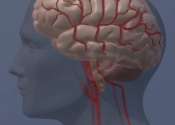Two new studies offer ways to avert accidents and workplace injuries for American workers
Human error is a causal factor in up to 80 percent of workplace accidents. A new study measuring the eye movements and cognitive processes for at-risk workers, sheds new light on the potential to avert accidents and possibly ...
Dec 17, 2020
0
0






